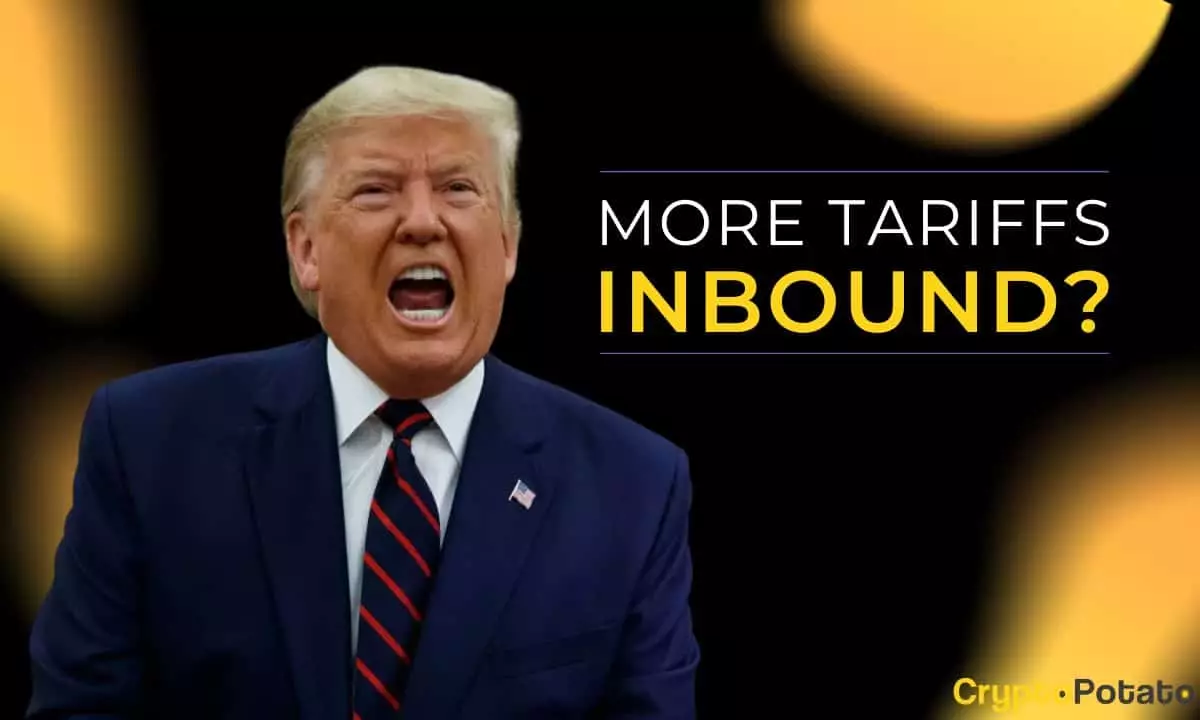The recent announcement by President Donald Trump regarding retaliatory tariffs is nothing short of a financial upheaval. On April 2nd, dubbed “Liberation Day” by the administration, Trump initiated a series of tariffs that have reverberated through global markets, causing stocks to plummet. In just a few days, the world watched as billions of dollars were wiped off market valuations, eclipsing $5 trillion in lost equity during the following week’s trading sessions. This bold and provocative move is undeniably a gamble that could bring severe consequences, not only for the American economy but also for the intricate web of international trade relations.
Trump’s tariffs vary dramatically across nations, with tariffs reaching as high as 46% for Vietnam and a notable 34% for China. This strategy aims to eliminate the trade deficit that Trump claims puts America at a disadvantage. However, characterizing these measures as “reciprocal” does little to mask their unilateral nature. The financial markets’ immediate reaction reflects a deep concern that this tactic may lead to a prolonged trade conflict, with potential ramifications for every sector of the economy.
China and Global Retaliation: A Dangerous Game
China responded quickly to Trump’s announcement, imposing their own hefty tariffs while seeking to curb exports to the United States. Their denunciation of the tariffs as “bullying” and a violation of international trade norms raises critical questions about the sustainability of American isolationism in a globally interconnected environment. The ongoing hostility has many looking warily at the possibility of a deepening divide, reminiscent of the Cold War era. In this high-stakes game, no country is truly safe from collateral damage, and the potential for escalation is frightening.
Further complicating the situation is the response from other nations. While some have opted for a diplomatic approach in hopes of negotiating favorable terms, the stakes only grow higher. Importantly, the longer these tensions persist, the more precarious the global trading system becomes. The European Union’s attempts to engage in pragmatic negotiations underline the urgent need for diplomatic resolution, yet the ambition of “America First” stands as a significant barrier to meaningful dialogue.
The Financial Fallout: An Uncharted Territory
The economic fallout from Trump’s tariffs has been stark, with major stock market indices, including the S&P 500 and the Dow Jones, experiencing distressing declines. It is troubling to see widespread loss across all market sectors, particularly among technology giants like Microsoft and Apple, which are long considered stalwarts of economic resilience. The stock market has now entered a bear phase, sending shivers down the spines of investors who once viewed these companies as safe havens.
Historically, stock markets have mirrored the performance of cryptocurrencies, particularly Bitcoin, which has often been viewed as a speculative asset. Nevertheless, in this recent climate of fear and volatility, Bitcoin appears surprisingly resilient, facing only a slight decrease. This divergence between traditional markets and Bitcoin may signal a fundamental shift that those in the financial sphere should consider with both optimism and caution. Experts speculate that this could be an indicator of a greater opportunity for digital assets to emerge as an alternative during turbulent economic times.
What Lies Ahead: A Call to Action
What is clear amid this chaos is that America must delicately balance its ambition for sovereignty versus the functionality of global cooperation. The trade war initiated by Trump may resonate with some voters; however, its long-lasting impact could inflict collateral damage on American workers and businesses. We must advocate for a more measured approach that retains fair trade practices while also addressing genuine concerns of imbalances in international dealings.
The potential for negotiation and resolution exists, but not without compromise. A robust economy relies on collaboration, innovation, and constructive engagement with international partners. Trump’s impulsive decision-making style could hinder progress, rendering economic growth a quagmire rather than an achievable goal. The coming months will be critical in deciding whether America’s approach to tariffs will spur growth or bury us deeper into a financial abyss.
















Leave a Reply